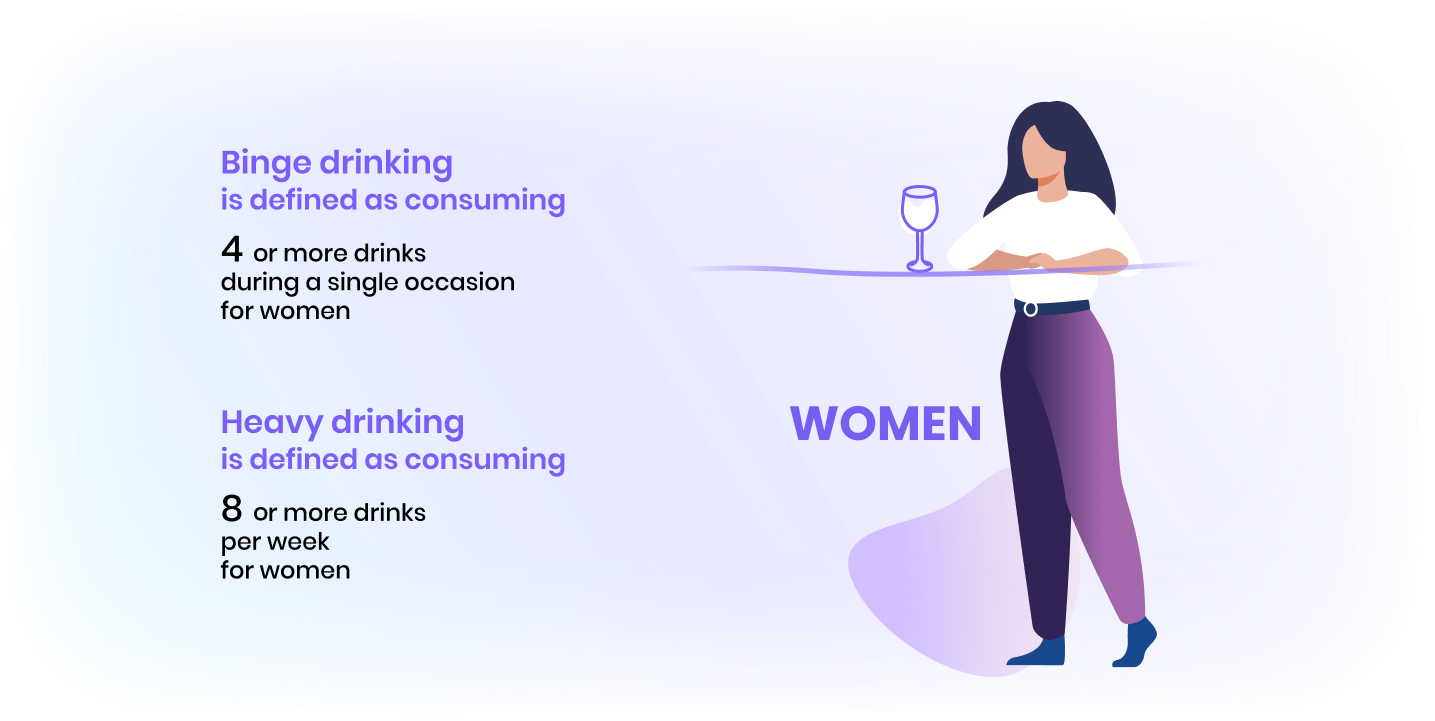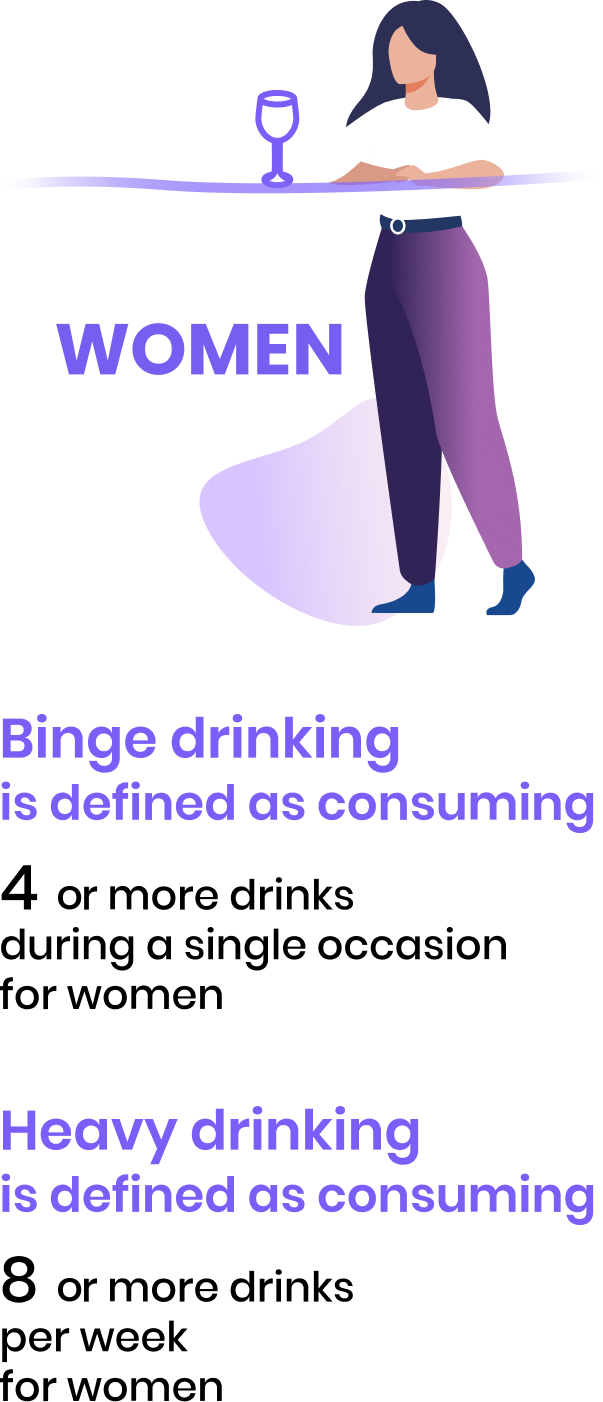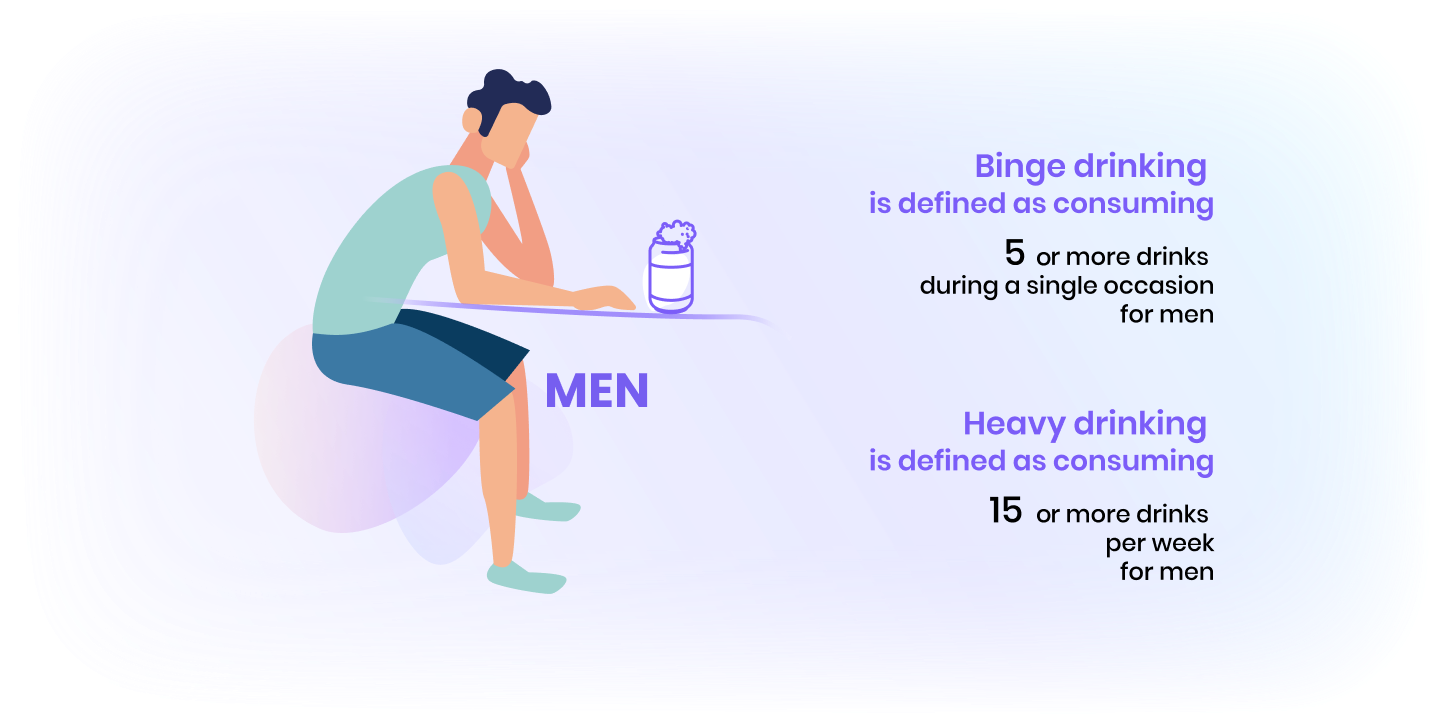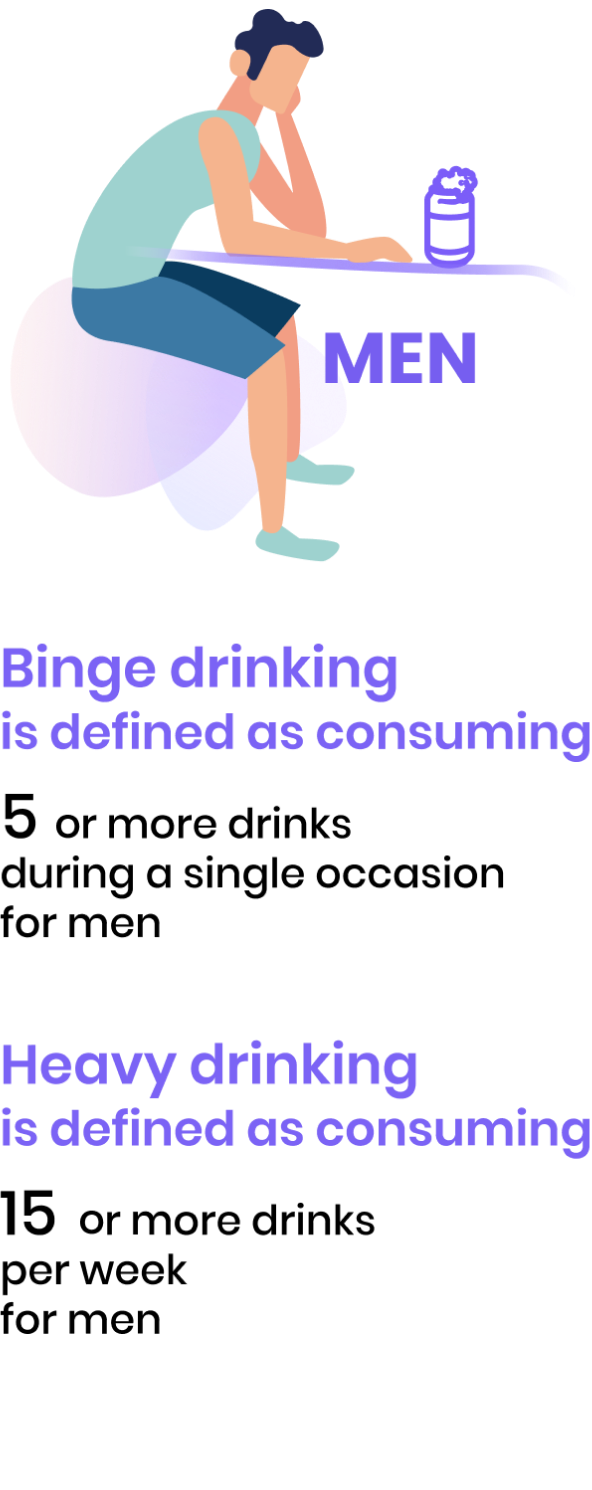
Risk Factors
Unhealthy alcohol intake
General guidelines for weekly drinking for keeping alcohol-related health risks at a low level
- It is safest not to drink more than 14 units a week on a regular basis.
- If you regularly drink as much as 14 units per week, it is best to spread your drinking evenly over 3 or more days. If you have one or two heavy drinking episodes a week, you increase your risks of death from long term illness and from accidents and injuries.
- The risk of developing a range of health problems (including cancers of the mouth, throat and breast) increases the more you drink on a regular basis.
- If you wish to cut down the amount you drink, a good way to help achieve this is to have several drink-free days each week.
*UK Chief Medical Officers’ guidelines




The consequences of excessive alcohol use
Excessive alcohol use has been linked with the development of many non-communicable diseases. However, the relationship depends on many factors including the pattern of alcohol use (heavy drinking or binge drinking) as well as type and length of alcohol use. Therefore, there is a complex relationship. The World Health Organization estimated that 5.1 % of the global burden of disease and injury is attributable to alcohol, as measured in disability-adjusted life years (DALYs).
Overall, research suggests that excessive alcohol consumption can lead to an increased risk of:
- Some cancers, including breast, mouth, throat, liver, and colon.
- Diabetes
- Neuropsychiatric diseases and mental health problems, including depression and anxiety
- Cardiovascular disease
- Liver diseases
- Pancreatic diseases
- High blood pressure (hypertension)
- Heart disease
- Stroke


